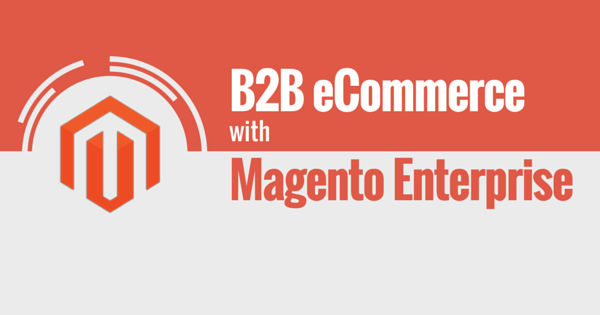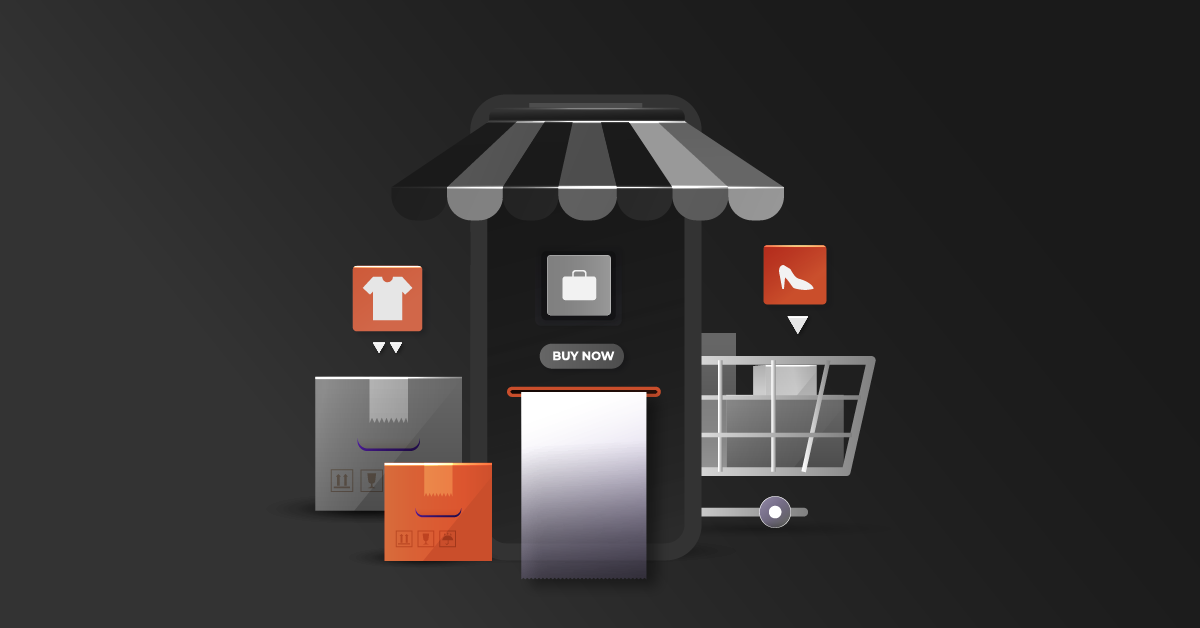Looking for an enterprise solution for your B2B eCommerce store? Let’s get it done with our Magento services.
While the majority of the Ecommerce agencies and platforms concentrate on the popular B2C market, we tend to forget the immense potential of the sleeping giant which is the B2B market. In the following series of articles, we shall have an in-depth analysis of the characteristics of the B2B market and how Magento along with eBay enterprise solutions as a platform can provide an intricate solution to this market.
Contents
The Power and Potential of Magento B2B eCommerce
Volkswagen AG is Europe’s largest car manufacturer, producing 6 million vehicles, manages huge brands such as Audi, Bentley, Bugatti, Lamborghini, Seat in Spain and Skoda in the Czech Republic. With 322,000 employees the company operates their plants in Europe, Africa, Asia/Pacific rim, and the Americas.
Various companies in Volkswagen Group annually purchase components, automotive parts and indirect materials worth 62 billion Euros. Obviously, the procurement process and relationship with suppliers is critical for Volkswagen’s success.
Today, the Volkswagen Group manages almost all of its procurement needs via its private B2B platform – http://www.vwgroupsupply.com/. This B2B platform offers 30 different online applications such as quotations, contract negotiations, catalog purchases, purchase order management, engineering change management, vehicle program management, and payments among others.
Its online catalog contains about 2.2 million items from 550 global suppliers. In March 2007, there were 13,500 internal users of online catalog who had conducted over 1.1 million transactions with a value of 300 million Euros. During 2006, 3,310 contract negotiations involving 4,100 companies were conducted online with a value of 17.1 billion Euros.
During the first 3 years, the cost reduction due to this private B2B platform amounted to 100 million Euros. This case study from Volkswagen is enough to understand the power and potential of Magento B2B Ecommerce and its ability to revolutionize the industry.
B2B Ecommerce
B2Bi (Business-to-Business Integrators) are companies that help brick-and-mortar businesses develop an online presence with B2B Ecommerce capabilities and to integrate their traditional EDI systems with the web.
Magento with its technology/domain expertise and customer reference base can be a major player in this segment. Many B2B businesses are implementing Magento/eBay Enterprise and integrating the same with ERP systems like SAP or Oracle.
There are also many B2B extensions in the Magento Extensions Marketplace. A basic understanding of B2B is necessary to work with these companies to integrate 3rd party tools or even to install and implement the Magento B2B extensions.
Familiarity with B2B concepts and jargon will enable us to map its landscape. Given below are some of the underlying concepts of B2B.
B2B is described as the form of relationship with the company on the side of supplier and another business company on the customer side. This business company could be represented by sole trader, company, or institution.
B2B market includes huge number of transactions, and is usually more complex. The complexity leans on number of people responsible for the transaction and number of steps in these transactions.
Most B2B models are moving away from legacy EDI systems which are expensive and cumbersome to handle to affordable online platforms where buyers and sellers can meet from any part of the world.
Components of B2B

Models of Magento B2B Ecommerce
By 2020, B2B market will be $6.7 trillion in gross merchandise value, 2 times bigger than B2C ($3.2 trillion).
It is important to understand the nuances of this market to know what workflows, features, functionalities, approval cycles, payment methods, logistic/shipping methods and third party integrations are expected in an application like Magento/eBay enterprise to win the market.
There are 3 major models of B2B depending on who controls the marketplace – the buyer, the supplier or the intermediary.
- In a Supplier-Oriented Marketplace many buyers face few suppliers.
- In a Buyer-Orientated Marketplace few buyers face many suppliers.
- In an Intermediary-Oriented Marketplace many buyers face many suppliers.
Supplier Oriented Marketplace (Sell-Side)
Supplier-Oriented Marketplaces offer a group of customers a wide spectrum of products and services and also support them in their own business.
A successful example of this business model is Cisco (Cisco Commerce).
Excellent reputation and a group of loyal customers are necessary for the success of the sites using this model.

Buyer Oriented Marketplace (Buy-Side)
By using Supplier-Oriented Marketplaces, buyers would have to search online stores to find and compare suppliers and products. This would be an expensive and time consuming process for big buyers, who purchase a lot of items on the Internet. As a result, such big buyers prefer to open their own marketplace, which is called a Buyer-Oriented Marketplace.
An example of this is GE supplier portal.

Intermediary-Oriented Marketplace (Exchanges)
This business model is established by an intermediary company which runs a marketplace where business buyers and sellers can meet.
There are two types of Intermediary-Oriented Marketplaces:
· Horizontal marketplaces – Offer services to all industrial sectors.
Example of this market – Alibaba, Amazon Source
· Vertical marketplaces – Concentrates on one industrial sector.
Example of this market – Paper Exchange, Plasticsnet

Business Purchasing and Sourcing
“What” of B2B purchase
Manufacturing Inputs – (Direct Goods)
- In manufacturing inputs, the purchased raw material goes directly into the product or the process.
- Companies here will need specialized logistics/shipping – Chemical companies need goods that fall under hazardous or restricted materials and these need specialized logistics.
Operating Inputs – (Indirect Goods)
- In operating inputs, the purchased raw material (often called MRO- Maintenance, Repair, Operating goods) is not part of the finished product. The purchased materials are generic in nature for e.g. office stationery
- The goods purchased do not vary from industry to industry
- Companies here do not need specialized logistics/shipping
“How” of B2B Purchase
Systematic Sourcing involves (Strategic Sourcing)
- Negotiated Contracts
- Qualified Suppliers
- Long term
- Close relationships with buyers and sellers
Spot Sourcing
- Immediate Need
- Low Cost
- Buyers and Sellers may not see each other
“What” and “How” of B2B purchase can be fitted into a “Johari” window as shown below…

- MRO hubs are horizontal markets that enable systematic sourcing of operating inputs.
- Yield managers are horizontal markets that enable spot sourcing of operating inputs.
- Exchanges are vertical markets that enable spot sourcing of manufacturing inputs.
- Catalog hubs are vertical markets that enable systematic sourcing of manufacturing inputs.
The above concepts provide a glimpse of the B2B world. In the next blog, we will see the challenges and the opportunities for Magento in this multi-trillion dollar market. Keep watching this space.
References
Source: Forrester Research / Internet Retailer Q2 2014 Global B2B Sell-Side Survey
https://www.internetretailer.com/b2b-ecommerce/market-facts/?cid=2015-B2BGuide-IRTLead2
Online B2B Market: Applying lessons from B2C to B2B – Frost & Sullivan Analyst Briefing series.
http://ecommerceandb2b.com/what-makes-b2b-b2b/
https://www.internetretailer.com/commentary/2014/11/21/five-key-components-successful-b2b-e-commerce
http://www.forbes.com/sites/sarwantsingh/2014/11/06/b2b-ecommerce-market-worth-6-7-trillion-by-2020/
http://www.ww.uni-magdeburg.de/fwwdeka/student/arbeiten/013.pdf
https://hbr.org/2000/05/e-hubs-the-new-b2b-marketplaces/ib
E-Commerce – Business.Technology.Society – 4th Edition – Kenneth C Laudon and Carol Guercio Traver – Pearson Publications
Electronic Commerce 2010 – A Managerial Perspective – 6th Edition – Efraim Turban, David King, Jae Lee, Ting-Peng Liang, Deborrah Turban – Pearson Publication




